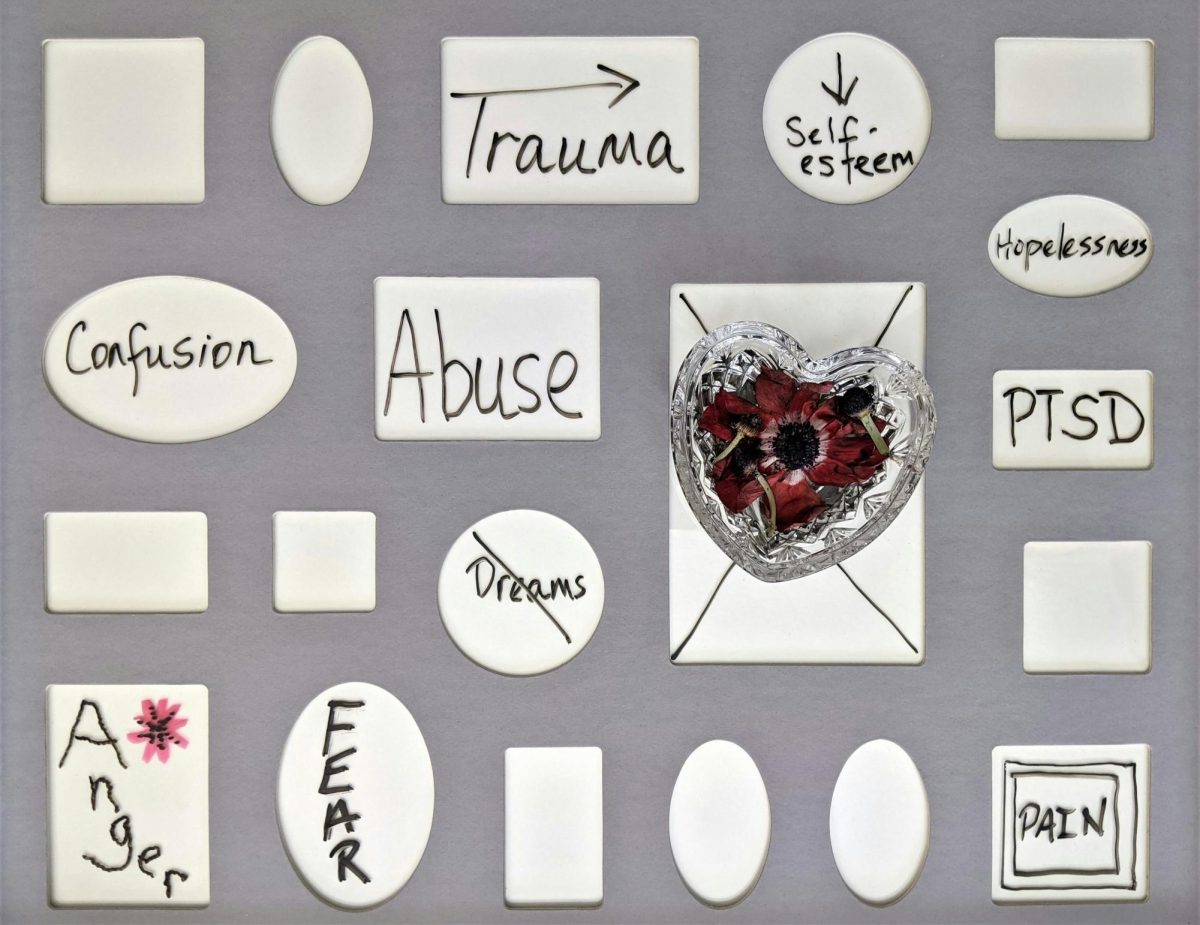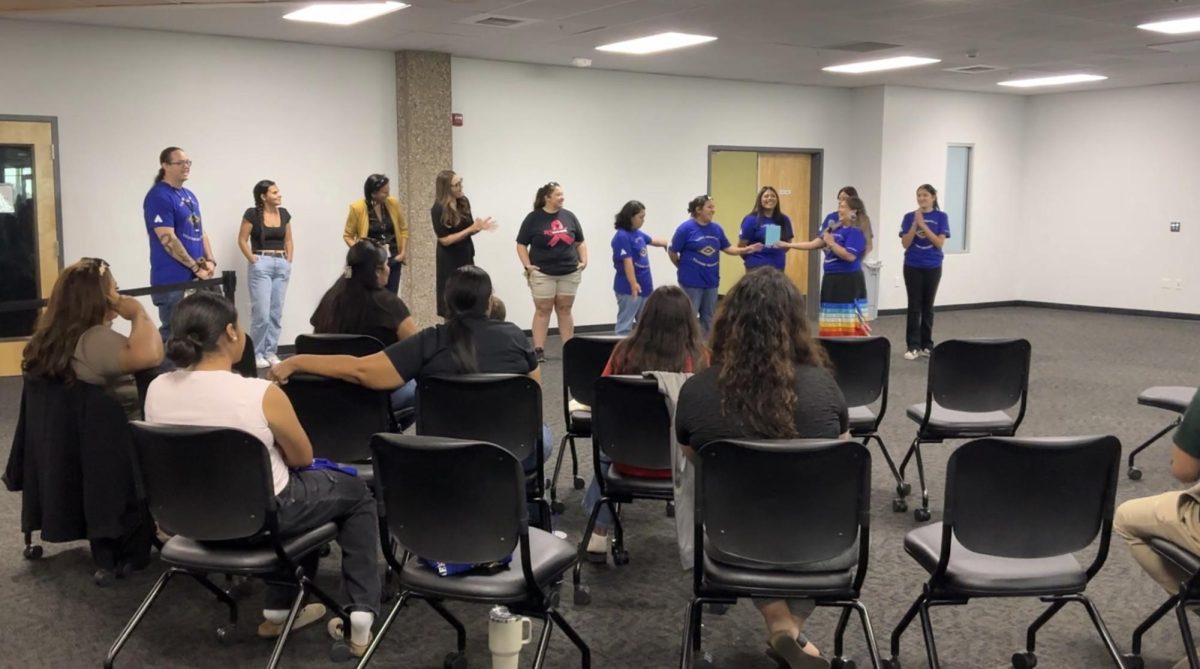Let’s be candid. Being vulnerable, asking for help or even knowing when you need some, is hard.
Butte College recognizes this, and in efforts toward both its students and faculty’s mental well-being, has implemented a variety of resources.
Many of you may have heard of the following resources: Roadrunner Hub, EOPS (Extended Opportunity Programs & Services), Student Health Clinic, DSPS (Disabled Students Program and Services), Career Counseling, and many others.
However, you may not be aware of the free, on-site, licensed therapy located at both the main and Chico campuses.
Today I spoke with one of the three licensed counselors hired by Butte College, Roy Dyer.
Roy has a beautifully diverse background, starting with over 11 years of experience as a marriage and family therapist. Prior to that, he specialized in drug and alcohol counseling. Before that, he spent a decade as a forensic psychologist working in correctional institutions, helping inmates with their mental health, before generously joining us here at Butte.
When Mr. Dyer was hired the initiative was clear: to assist in protecting the most valued assets on campus–the minds of the populous.
As of 2024, many of us understand the importance of maintaining a healthy mind; however, understanding the importance doesn’t always mean having resources to assist in taking care of such an essential organ. Often, gaining access to such facilities can be more of a hassle than it should be. We all have lives, families, and immediate responsibilities that can cause us to put our own well-being on the back burner.
Roy discusses this challenge, stating “I think it was part of one of the reasons why they hired me.”
He continues, “I have a good understanding of addiction and trauma. [I’ve] done a lot of work with people with PTSD. And so they were concerned -they meaning, Butte College, given everything that our community has been through; campfires, the dam, and then Covid.”
“Yeah, it’s a lot of trauma. And so their concerns were merited,” I responded.
We went on to discuss the annual Healthy Mind Study (HMS) that assesses the mental health of undergraduate and graduate students at colleges and universities.
The 2022-23 HMS is an annual online survey unveiled an alarming 60% of students who have reported having anxiety, only a fraction of those students reported being diagnosed.
These staggering differences in statistics show us a few things. First, many students who need help, aren’t receiving it. Additionally, this gap in mental health support can lead to broader consequences, such as academic struggle, increased dropout rates, and social isolation. Without proper intervention, students facing undiagnosed anxiety, or other disorders, may find it harder to balance their coursework, maintain relationships, and ultimately thrive in their college experience.
This is why, in 2022, Butte College initiated a collaborative effort with the JED Foundation, which partners with colleges to prevent suicide and promote mental health by assessing campus support systems and offering tailored recommendations. JED helps schools improve emotional well-being, build resilience, and encourage students to seek help when needed.
Butte is able to provide such services by supplementing the charge into student resources making your tuition count.
Per semester, every Butte College attendant can receive free counseling services.
With students receiving five sessions and faculty eight, this is equivalent to $500-800 worth of “free” therapy.
Butte College can accommodate seven people per day and are available throughout each semester to registered Butte students. On the main campus, Roy and Hannah are located on the first floor of the Campus Center with Karen at the Chico campus.
As we close off this interview I beg the question, what can we do for ourselves when unable to access such service, and what can we do to maintain a healthy mind?
Roy emphasizes the importance of disconnecting from social media and spending time in real-life interactions. He goes on to explain how we are in a state of over-consumption of “negative stimulation.”
He advises students to limit their exposure as we are what we consume, and the constant stream of dopamine and stress inhibitors triggered by the design of social media platforms paired with a lack of proper sleep can quite literally drive one into mental health imbalances. The goal is to maintain a solid balance. However, Roy acknowledges the challenge of balancing self-care with academic responsibilities.
I ask Roy how he personally hones this ability in his own life.
“I have learned over the years that burnout is a real thing. I’ve went through it. It’s a terrible, terrible thing, right? So, you know, I have to practice self-care just like anybody else. Which means I need to have hobbies.”
He plays music in a multitude of bands, something he loves to do, and has a supportive wife and family. He practices spirituality and has his own therapist.
I’m intrigued, and pleasantly surprised at his adamancy towards mental health providers receiving mental health services. He continues
“I am a firm believer that every therapist should go to therapy. You don’t have to go all the time, but you need to go. That’s because if you don’t work on your own ‘junk,’ then it will come into this room. And if you haven’t worked on yourself yet, you’re going to bring it in and things happen. So, there’s a lot of self-work that has to be done.”
He takes extra measures to ensure that he rids himself lingering trauma, especially secondary trauma such as hearing or witnessing someone else suffer which can have a deep negative effect on the psyche. It can get to the point that after many years, without even realizing it, that you are so desensitized from anything you used to consider shocking or abrasive.
Roy goes through an end-of-the-day three or four-step process to rid himself of secondary trauma and negative experiences, “. . . especially if it’s been a really hard day because it kind of sticks to you, like the metaphor would be like a sticky note. I gotta get those off me, right?” Otherwise, we can experience what Roy describes as “the slow creep.”
I gotta bring our interview to a close and say goodbye to Roy. I try to use some of his suggestions.
Before I leave the room, I do a little deep breathing, and I consciously think, “I’m leaving it here.” I then develop a plan to either listen to a podcast (that doesn’t have anything to do with therapy) or listen to music.
When I pull in my driveway, I consciously try to think of my lingering thoughts and think what’s left so I can leave it in my car.
After a wonderfully enlightening conversation with just one of the three brilliant minds and the welcoming environments of OUR licensed mental health professionals, I’m proud to be a Butte Roadrunner knowing I’m supported by the tireless efforts of our institution. You should be too, especially if you take advantage of the resources we are offered.
For additional resources:
National Suicide Prevention Lifeline
Phone: 1-800-273-TALK (1-800-273-8255)
Website: suicidepreventionlifeline.org
Provides free and confidential support for people in emotional distress.
Crisis Text Line
Text: Text “HELLO” to 741741
Website: crisistextline.org
Offers free 24/7 text support for individuals in crisis.
SAMHSA’s National Helpline
Phone: 1-800-662-HELP (1-800-662-4357)
Website: samhsa.gov/find-help/national-helpline
A confidential treatment referral and information service for mental and/or substance use disorders.
LGBT National Help Center
Phone: 1-888-843-4564
Website: lgbthotline.org
Offers free support and resources for LGBTQ+ individuals.
Trevor Project
Phone: 1-866-488-7386
Text: Text “START” to 678678
Website: thetrevorproject.org
Crisis intervention and suicide prevention for LGBTQ+ youth.
NAMI HelpLine
Phone: 1-800-950-NAMI (1-800-950-6264)
Website: nami.org/help
Offers free, confidential support for individuals and families affected by mental illness.
Veterans Crisis Line
Phone: 1-800-273-8255 and press 1
Website: veteranscrisisline.net
Provides free 24/7 support for veterans in crisis.







